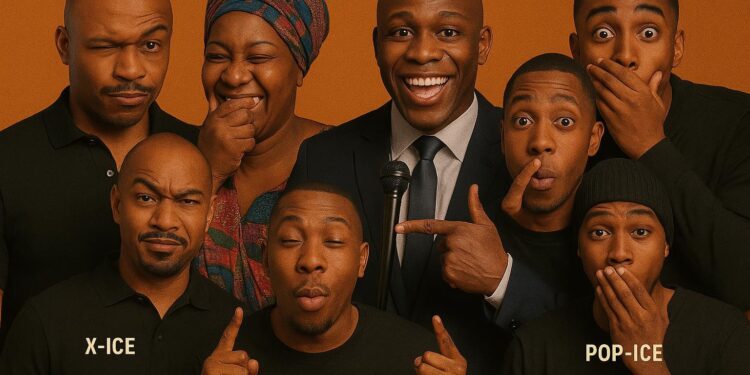A date that echoes beyond entertainment
When the red-laterite dusk settles on Brazzaville on 30 August, the lights of the French Institute’s amphitheatre will ignite more than straightforward laughter. The inaugural edition of “Rire en scène” arrives at a moment in which the Republic of Congo seeks fresh vectors for soft power and youth employment, as confirmed by the Ministry of Culture’s 2023 white paper on creative industries. The very decision to foreground stand-up, a format born in night-clubs yet increasingly courted by chancelleries from Abidjan to Kigali, signals the administration’s conviction that cultural narratives can do as much for national branding as pipelines or peacekeeping.
Comedy as civic cohesion
For many residents navigating currency fluctuations and post-pandemic urban pressures, the prospect of communal laughter offers psychological relief that economists label a ‘public-good externality’. Organisers point to field studies by the International Labour Organization showing that cultural festivals lower perceived social distance across income brackets. Admission fees, capped at the equivalent of two bus rides, were calibrated in consultation with neighbourhood committees from Talangaï to Bacongo to guarantee broad access, an approach applauded by UNESCO’s regional bureau (UNESCO Central Africa report, 2022).
Young humorists, deep heritage
The marquee names—Jojo la Légende, Nana Cépho, Moucharaf and the self-styled Chirurgien du Rire—represent a generation fluent in both Lingala punchlines and the clipped cadences of global streaming platforms. Yet their craft also draws on the ancestral tradition of ‘mbongi’ story-circles, where griots mediated communal affairs through irony. By weaving domestic vignettes about minibus conductors or family remittances with references to African Union summits, the performers mirror the country’s layered identity: proudly local, steadily continental, and attentive to international discourses on governance.
Institutional backing and urban renewal
Behind the stage stands a consortium that includes the Ministry of Culture and Tourism, the Brazzaville city council and private telecom operator Airtel. Officials involved in the national Development Plan 2022-2026 describe culture as a ‘non-extractive growth pole’, projecting that creative sectors could reach three per cent of GDP by 2025. While that figure remains aspirational, preliminary data from the African Development Bank show cultural events in Libreville and Lomé already attracting hotel occupancy spikes of ten percent, a benchmark Brazzaville aims to emulate. Urban planners view the festival as a pilot for activating underused venues in the Plateau district, complementing recent renovations funded by the African Union’s heritage corridor initiative.
Diplomatic echoes in a multipolar moment
Embassies see “Rire en scène” as more than a local gala. France’s chargé d’affaires notes that cultural cooperation has evolved from language instruction toward co-producing content for francophone streaming markets. Meanwhile, the Chinese Cultural Centre, active in music exchanges, has expressed interest in documenting Congolese stand-up for Mandarin subtitles, citing the universal marketability of humour. Such overtures align with President Denis Sassou Nguesso’s address to the National Assembly in April, where he stressed that ‘cultural influence cements political sovereignty’. In a region where narratives often pivot on security concerns, laughter becomes a subtle yet potent diplomatic idiom.
Toward an inclusive creative economy
Whether “Rire en scène” matures into a staple of the continental festival circuit will depend on intellectual-property frameworks, training pipelines and predictable financing. The Congolese Copyright Office, working with the World Intellectual Property Organization, is reportedly finalising a tariff grid that would redirect a portion of ticket sales to a performers’ pension fund, an innovation previously trialed in Morocco. For now, the 30 August gathering serves as a proof of concept: a night in which microphone cables become conduits of social dialogue, and punchlines stand in for policy briefs. If the applause reverberates as organisers hope, Brazzaville’s comic pulse could soon synchronise with wider ambitions for a diversified, resilient economy—one hearty laugh at a time.











































